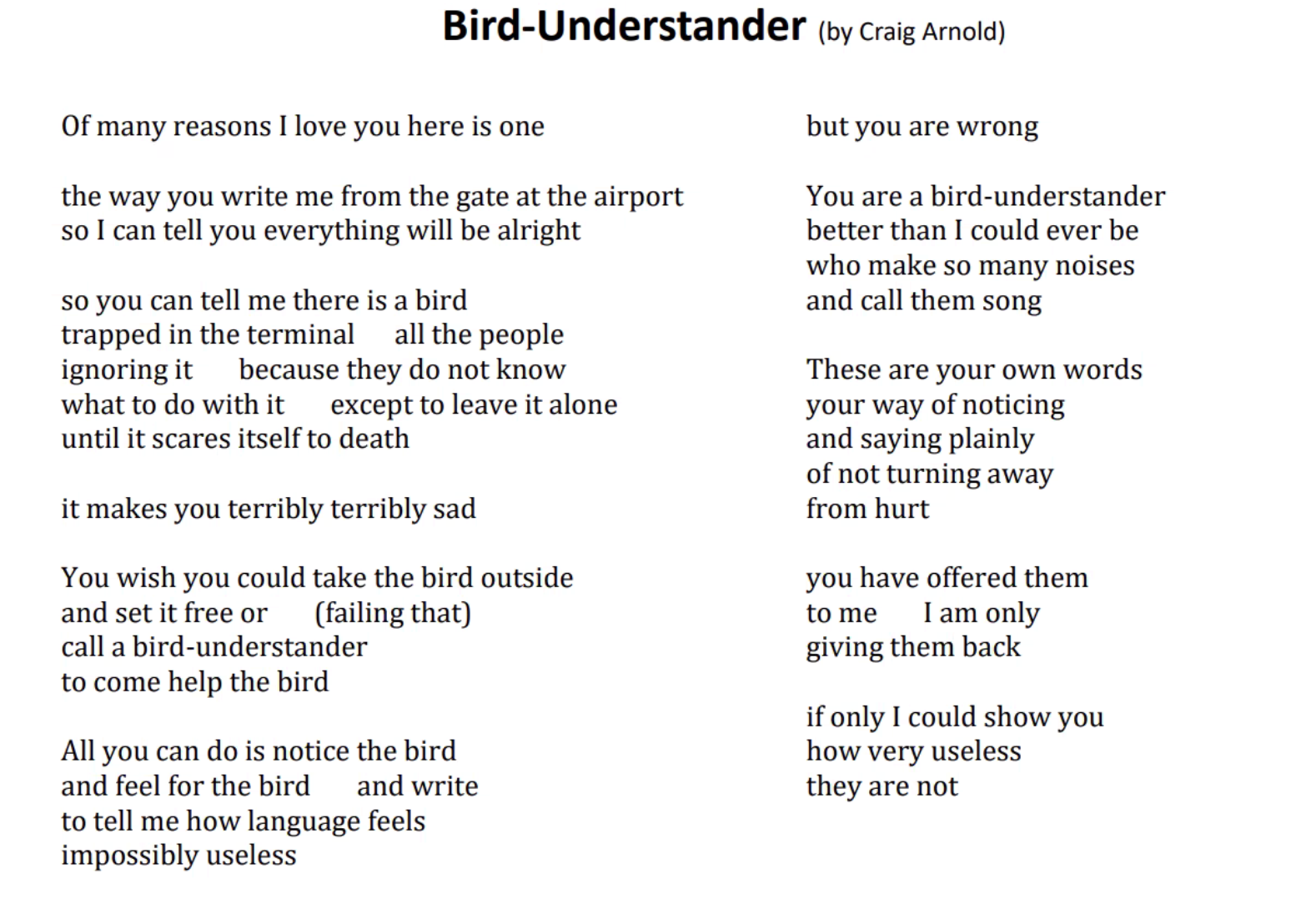by Dr. Tandi Wilkinson, Thriving Project Lead, RCCbc

I’ve been flattened with a cold for the last 10 days, and have felt pretty awful. At first, I didn’t feel well enough to attend this month’s Providers Thriving Together session, but part of me really wanted to learn more about the topic of Narrative Medicine. I also knew that the presenter Caroline Shooner would be well worth listening to. I’m so glad I attended — I came away excited about how Narrative Medicine could add to the quality of my experiences in medicine.
Caroline is a general practitioner on Haida Gwaii. She interested in how the Arts and Humanities can help promote health and allow us to look more critically and meaningfully at how we practice medicine. She has always thought of medicine as “Applied Humanities.” In 2015, she completed a MSc in Medical Humanities at King’s College London. During this year, she was introduced to the field of Graphic Medicine and started drawing cartoons, inspired by the comic side of small town medicine: The Boon Docs.
Here’s how Caroline descirbes Narrative Medicine:
Narrative Medicine is a discipline that is hard to define. In the words of Dr Rita Charon, it aims to “fortify healthcare with the capacity to skillfully receive the accounts persons give of themselves – to recognize, absorb, interpret, and be moved to action by the stories of others.”
Over the past two years, along with a few physician and nursing colleagues, I have had the amazing opportunity to attend a weekly Narrative Medicine ZOOM meeting facilitated by two faculty members of the Columbia University NM Program (Cindy Smalletz and Joseph Eveld). These sessions have given me a way to reconnect with what led me to medicine in the first place – my curiosity about what it means to be a human being. Through close reading of texts, paintings, and sometimes short video clips, we quench our thirst for beauty, for contemplation, for reflection, for friendship and community. These sessions also help us discover and challenge our limits and blind spots. They encourage curiosity and foster humility through shedding a non-judgemental, compassionate light on our own biases and shortcomings. It is the kind of humility that makes the heart grow bigger and more tender.
I was excited when Caroline shared a poem with us. For me, poetry is a real source of solace in difficult times, and also a source of awe — when a poet can describe, in a few words, a feeling I have better than I can, that takes my breath away and leaves me marvelling at how the poet could be so wise.
During the session, the poem, ‘Bird-Understander’, was read aloud, and then we were asked to notice what the poem might bring up for us, or what we might feel about it (as opposed to ‘analyzing the poem’). I encourage you to have someone read it aloud to you before reading further.

Here were some of the reflections participants shared on what the poem brought for them:
“This poem is about the courage of turning towards pain, instead of away. The courage of sitting with the suffering, while not being able to relieve it. To chose to witness it and name it. For many of us, it’s easier to turn away, especially when the pain cannot be fixed.”
“When love meets suffering, there is compassion.”
“There is so much love in this poem – the writer deeply sees the bird-understander, which is love.”
“Do we have colleagues that are like the bird, suffering and doomed to die? Am I the bird? This poem brings up for me the pain of where we now find ourselves in healthcare.”

Next, a four minute writing exercise, in which we were asked to write on the topic of ‘When Words Fail’. Hear a two poems shared by participants:
Words fail all the time, the depth of emotion, the lightness in my heart, the grief, the sorrow, the joy, the pride, the hopelessness……all there….wanting a place to land and nowhere to go. At times buoying my soul to heights and at other times dragging me low. I look at you and wish you had the words to comfort me, a place for all these emotions to land. Am I asking too much or should I be asking this of myself?
I do not know
what to say
when you tell me
how the world is failing
your mother
when you tell me that you are afraid
this will be your fate someday
with no daughter to worry
to tend to your stool-soiled nails
to sift through the laundry
for a missing hearing aid.
(this one is by Caroline – I told you, she’s amazing!)
If you want to learn more about Narrative Medicine, check out Dr Charon et al.’s textbook ‘The Principles and Practice of Narrative Medicine’.
About Dr. Tandi Wilkinson
Dr. Tandi Wilkinson is a Nelson, British Columbia-based emergency medicine physician with a generalist background. At RCCbc, she leads the Thriving Project, which facilitates unique wellness offerings for the province’s rural healthcare providers. These include the Providers Thriving Together Wellness Conversation Series—free monthly virtual drop-in sessions for rural healthcare providers to experience camaraderie and peer support in the service of activating their collective resilience. Read how Dr. Wilkinson’s journey to wellness became the impetus for the Thriving Project.
Take part in the The Art of Thriving: a reflective writing series
Dates: Thursday, November 9, 16 and 23rd from 7:00-8:15 pm. All sessions will occur on Zoom.
There is no expectation to attend all sessions – come to those work in your calendar.
Who can attend: Health practitioners (Doctor, resident, nurse practitioner, midwife) serving a rural community in BC
Cost: Free
Description: Integrating small writing practices into our everyday can allow us to slow down, reflect and develop more awareness about ourselves and our world. Through guided writing activities including list-making, visual journaling, and letter writing, participants will play with different ways to deepen their mindfulness and come away with tools to support their work as health care professionals.
Register: Fill out the registration form to participate and we’ll send you a calendar invite and reminders of the session dates.

Rayya Liebich is an award-winning Canadian writer and educator of Lebanese and Polish descent. Passionate about writing as a tool for transformation and changing the discourse on grief, she teaches creative writing classes to youth, and adults. www.rayyaliebich.com
Comments from past participants (Kootenay Boundary physicians)
- “That was a lovely exercise, I Think connecting with our creative and contemplative selves as a group is very sustaining and just the kind of thing we need.”
- “This was a really nice and uncomplicated way to help. personally i thought it went very far in my reminding me how to stay grounded without requiring an enormous amount of time.”
- “loved it. Rayya was lovely. She was calm and the exercises simple; however the effects were moving. Thank you”
- “Rayya was a wonderful facilitator who was able to promote deep introspection in a short time. She also has the gift of asking us to put our insights into practice.”